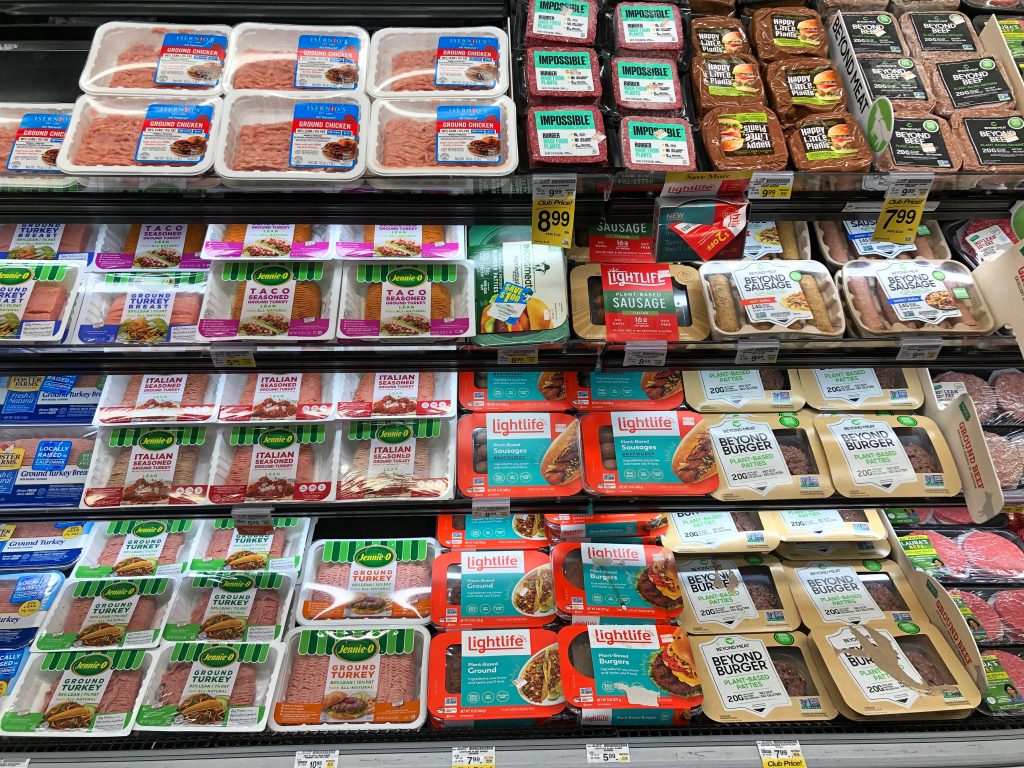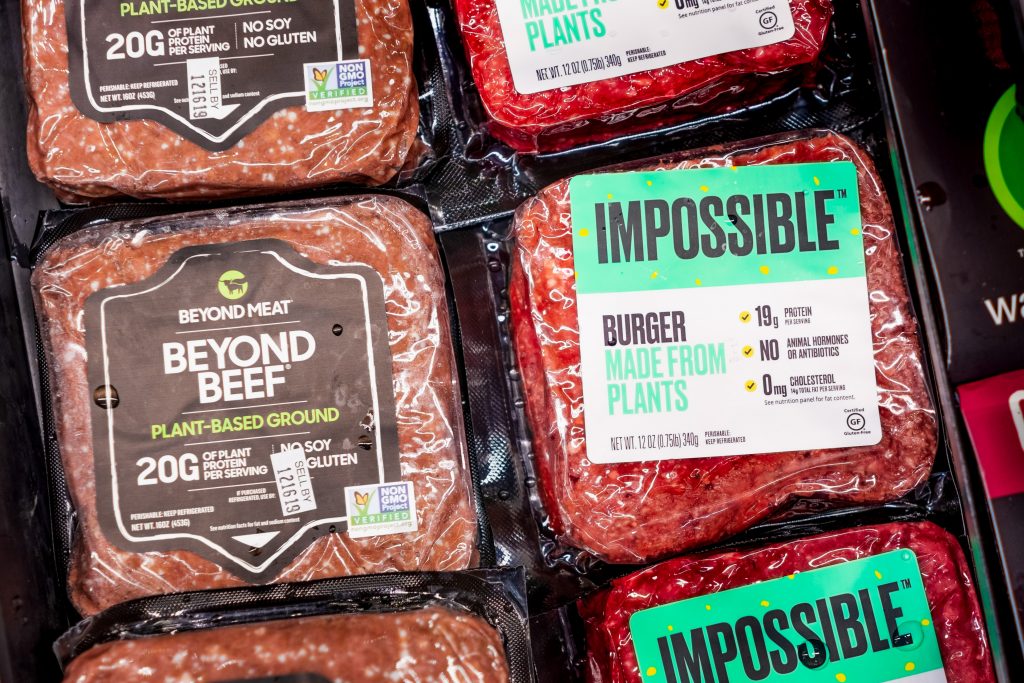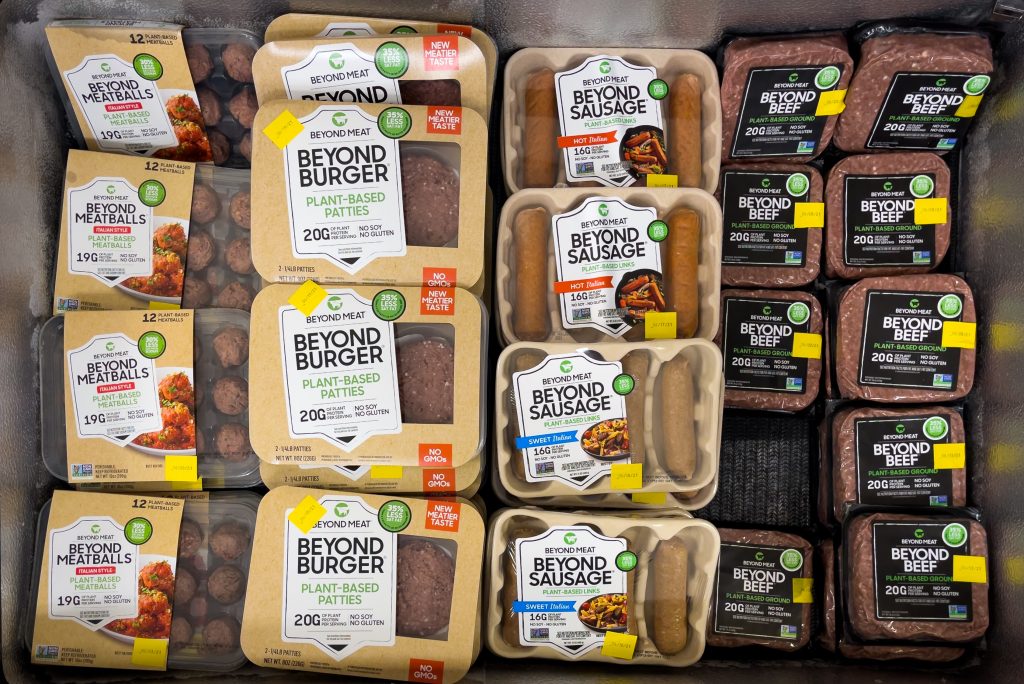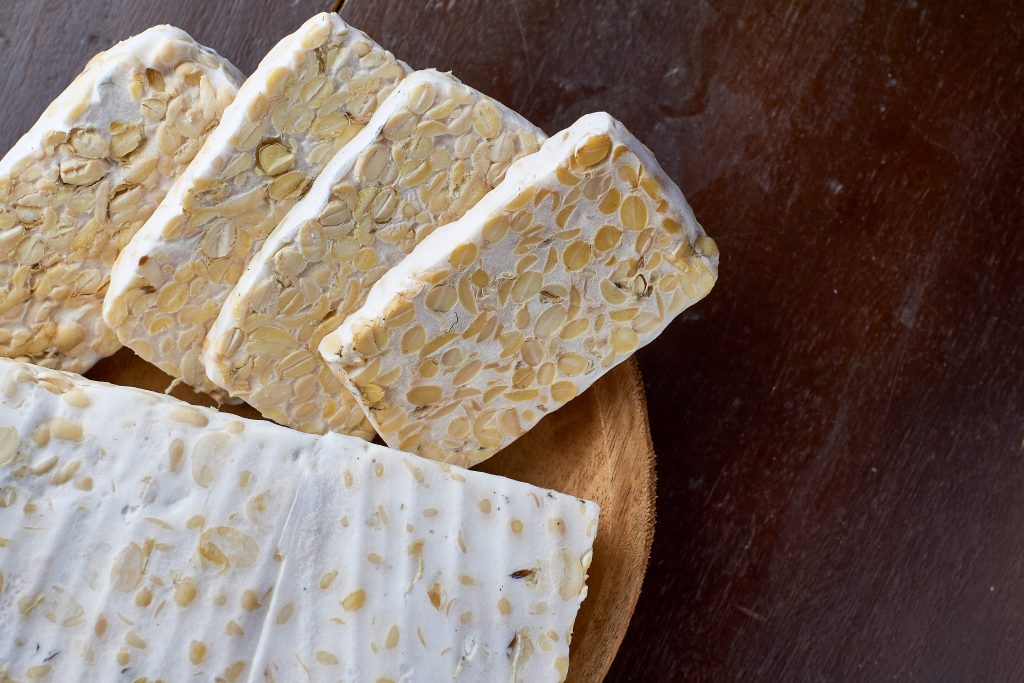In recent years, vegan meat alternatives have become increasingly popular. With so many people looking to reduce their meat intake or eliminate it altogether, companies are racing to create products that mimic the taste and texture of meat. But is fake meat healthy?
While these products may be convenient and tasty, they’re not necessarily healthy for you. In this blog post, we’ll take a look at what’s in fake meat, the health risks associated with it, and some healthier plant-based alternatives.
What’s In Fake Meat?
There is a lot of confusion surrounding fake meat products. Some people are concerned that they may be harmful to our health, while others believe that they are a healthier alternative to real meat.
The truth is that there is no evidence that fake meat is harmful to humans. In fact, many fake meats are actually quite healthy, containing important nutrients like iron and fiber. But some people may be concerned about the health effects of fake meat, there is no evidence that these products are harmful to human health.
The health risks associated with these products likely come from the added flavors, colors, preservatives, and added chemicals that are often used in them. My rule of thumb is to stick to things that I know how are made.
How to Incorporate Fake Meat Into Your Diet
Being a new vegan can be tough but ‘fake’ meat is for everyone. There is a growing trend of people incorporating fake meat into their diet in order to reduce saturated fat and calories.
Fake meat can be used as a healthy alternative to real meat, especially when it comes to replacing ground beef in recipes.
When purchasing fake meat, make sure that the product you select is high in protein and low in sodium. Also, look for products that are GMO-free and gluten-free for those with food allergies or intolerances.
The Main Ingredients
It is no secret that meat-based products are becoming increasingly rare, with plant-based alternatives being popular among health-conscious people.
The most popular plant-based meats on the market are made from soy, pea, and wheat proteins which can be mixed, and bonded to be mistaken for real meat.
While there is some debate surrounding whether fake meat actually qualifies as “real” food or not (mainly because it doesn’t contain all essential nutrients), it still enjoys high popularity due to its versatility, good taste, and purported nutritional benefits.
Some of the main ingredients in fake meats include oils, binding agents, flavoring agents, and coloring agents. Some of the most well-known brands producing vegan fake meats include Beyond Meat and Impossible Foods.
Additives
When it comes to meat alternatives, fake meat products can be deceiving. Made from plant-based proteins mixed with additives and often containing unhealthy ingredients, these faux meats should not be taken lightly.

Some of the most common additives found in fake meat products include flavors, colors, and preservatives. But there are many “hidden” ingredients that do not make it to the nutrition facts label.
Knowing what is in your food is key if you want to avoid any health risks associated with consuming them unwittingly. It’s also important to note that many of these additives may have negative side effects when consumed in high doses over a long period of time. So before buying or eating anything labeled as “fake meat”, make sure you read the label carefully!
The Health Effects of Fake Meat
When it comes to the health effects of fake meat, the verdict is still out. While some studies have shown that it can be healthier than real meat, others have found that it contains additives and preservatives which can be harmful. Accoriding to the article “5 Chemicals Lurking in Plant-Based Meats” there are many hidden ingredients in plant based meats such as
Tertiary butylhydroquinone – TBHQ is a synthetic preservative that prevents discoloration in processed foods. The FDA limits the amount of TBHQ allowed in foods because studies of laboratory animals has found an association with TBHQ and cancer.
Magnesium carbonate– Remember when some bread was accused of having a yoga mat chemical? Well, magnesium carbonate, used in foods to retain color, is also used in flooring, fireproofing, and fire-extinguishing compounds
Erythosine (Red #3) – Red #3 is an artificial food coloring. The FDA banned the use of Red #3 in products such as cosmetics in 1990 after high doses of the substance were linked to cancer. But it can still be used in foods like fake meat.
Propylene glycol – Propylene glycol is an odorless, colorless liquid used as a moisturizer. It’s also used as a liquid in e-cigarettes and is the primary ingredient in antifreeze
Ferric orthophosphate – Also called iron phosphate, this chemical is used to fortify foods. It can also be used as a pesticide to kill slugs and snails. While generally considered safe (for people) in food in small quantities, it can be a skin and eye irritant and may cause an upset stomach.
More information on which ingredients are in plant based meat can be found here – https://wellness.consumerfreedom.com/ingredient-guide/ingredients/

Furthermore, processed fake meats are often less healthy than unprocessed ones because they tend to contain more calories and unhealthy fats. After all, veggie burgers don’t grow in the ground. They’re made in factories.
On the whole though, plant-based proteins made from soybeans or pea protein are generally healthy for you – as long as you read food labels carefully before making any purchases!
The Bottom Line
If you’re looking to reduce your meat consumption, fake meats can be a great option. They come in many different flavors and can fit into a healthy diet easily. However, make sure to read the labels carefully as some fake meats may contain unhealthy additives.
The health risks of consuming fake meat
If you’re looking for a healthy meal, you might be better off sticking to real meat or plant-based proteins. That said, if you’re looking for an alternative to meat, fake meat is an option.
But be aware of the health risks associated with consuming it. Fake meat is high in sodium, which can lead to high blood pressure and other health problems.
It’s also often processed and contains unhealthy ingredients. In addition, fake meat may also contain chemicals that can be harmful to your health.
So, before you decide to try it out, be sure to do your research and weigh up the pros and cons.
Why is fake meat not a healthy option?
Fake meat is not a healthy option for most people. Not only is it high in sodium, which can lead to health problems, but it’s also often made from soy, which is a common allergen. Additionally, fake meats are highly processed and often contain unhealthy ingredients. In short, fake meat is not a healthy replacement for real meat, and should not be consumed on a regular basis.
Brands
When it comes to meat-based food products, it can be hard to know what’s real and what’s not. This is especially the case when it comes to fake meat products.

That’s because both Impossible Foods and Beyond Meat have created burgers that taste very similar to real beef burgers.
However, health experts are still concerned about the long-term effects of consuming these products on a regular basis. More research is needed to determine if fake meat is truly healthy for humans to consume on a regular basis. In the meantime, if you’re looking for a burger alternative, go for plant-based burgers instead. They’re vegan, gluten-free, and soy-free, which makes them a great option for those with food allergies or sensitivities.
Impossible Foods
Impossible Foods is a food technology company that uses plant-based ingredients to make meat products taste like real meat. These products are said to be healthier than traditional meat because they are lower in saturated fat and cholesterol. However, health experts say more research needs to be done before making any definitive claims about the long-term effects of consuming fake meat on a regular basis. One of the most popular brands of fake meat is Impossible Foods.

impossible burger
Fake meat is a burgeoning industry, with several brands competing in the marketplace. However, there are some potential health risks associated with consuming fake meat that you should be aware of. Fake meat is often made from soy or other plant-based proteins, which can be allergens for some people. The impossible burger contains leghemoglobin, a protein found in soybean roots that has been linked to gastrointestinal problems in some people. Fake meat may also be high in sodium and saturated fat, which can increase
Beyond Meat
There are a number of reasons why people may be interested in veganism or plant-based diets. Some people feel that these eating patterns are healthier than meat-based ones, while others simply don’t want to damage the environment with their food choices. One company leading the way in Plant-Based meat products is Beyond Meat. They offer products that are free from cholesterol and saturated fat and made from pea protein – a complete protein source. Their products have been tested by the FDA and found to be safe for human consumption. Additionally, beyond meat doesn’t involve any animal exploitation – all of its ingredients come from plant-based sources!

Gardein
Gardein is a vegan-friendly brand that offers plant-based products that are high in protein and low in saturated fat.
Their beefless ground, chicken strips, vegan meatballs, and more can be used as replacements for meat in many recipes.
All of their products are GMO free and plant-based – making them the perfect choice for those who want to reduce their intake of saturated fat.
MorningStar Farms
If you’re looking for a vegan-friendly alternative to meat products, MorningStar Farms is a great brand to consider. Their products are high in protein and provide variety, with options that suit different food preferences.
Soy is their main ingredient and this plant-based protein source is complete – meaning it contains all the essential amino acids your body needs. Additionally, they use wheat as well to make sure their products are gluten-free.
Is there any way to make fake meat healthier for you?
There’s a lot of buzz around fake meat these days, but is it really healthy for you? The answer is a little bit complicated.
While fake meat may not be the healthiest option, it can still be part of a healthy diet if consumed in moderation.
If you’re looking for a healthier option, choose plant-based meats that are made with whole foods. That said, beware of fake meat products that are often high in sodium and processed ingredients. In the end, it’s up to you to decide if fake meat is right for you.
What to Eat Instead
So, fake meat is all the rage right now. But is it really good for you? The short answer is no. In fact, it’s actually not that healthy for you. Instead, try tofu or tempeh. Both of these options are high in protein and low in fat, making them a healthier choice. They can be cooked in a variety of ways, so you can enjoy them any way you like! So, next time you’re looking for a delicious and nutritious meal option, give tofu or tempeh a try. You won’t regret it!

Frequently Asked Questions
Is fake meat actually healthier than real meat?
There are many benefits to fake meat, but it’s not perfect and isn’t completely healthy. One of the biggest issues with fake meat is that there is a high level of processed ingredients.
Most fake meats contain soy, gluten, or pea protein, all of which are highly processed. Additionally, artificial colors and flavors may be harmful to your health.
While fake meat is generally lower in calories and sodium than real meat, it is also less nutritious overall. Fake meat typically contains less protein, iron, and vitamins than real meat.
Why is there so much controversy surrounding fake meat?
There is a lot of controversy surrounding fake meat because there is no clear consensus when it comes to its health benefits.
Some people believe that eating fake meat can have negative effects on our health, while others feel that it’s healthier than regular meat.
However, most experts agree that there aren’t any longterm studies available yet to prove the good or bad effects of consuming fake meat. So, the truth is that we don’t really know for sure whether fake meat is good or bad for our health.
Until more long-term studies are conducted, we won’t be able to say for sure whether fake meat is a healthier alternative to regular meat.
What are the health risks associated with fake meat?
Fake meat products can cause a number of health problems because they are made with soy, wheat, corn and other problematic ingredients.
These ingredients can have negative effects on health, including weight gain, digestive problems, and even malnutrition.
Some people who are gluten-intolerant or sensitive to soy also tend to react negatively to fake meat products. This is because the gluten and soy in these products can trigger an immune response in people with these conditions.
In addition, the manufacturing process of fake meat often involves harsh chemicals and artificial additives. These chemicals can be toxic and may cause health problems, especially if fake meat is consumed on a regular basis.
Does fake meat contain any unhealthy ingredients?
When it comes to vegan and vegetarian meat replacements, there has been a lot of debate lately over whether or not these products are actually healthy for you.
Some of the ingredients found in faux meats include soy, wheat, and gluten which can cause inflammation and gastrointestinal problems. In addition to these harmful ingredients, many people also argue that artificial flavors and colors may have negative impacts on your health too.
While it is true that there are some key ingredients in fake meat that can be unhealthy if consumed in high amounts, health experts agree that these products can be a part of a healthy diet when consumed in moderation.
So, if you’re looking to add some meatless options to your diet, go ahead and try out some of the fake meat products on the market – just be sure to read the nutrition labels carefully and moderate your intake!
What are the benefits of eating fake meat?
Many vegetarians and vegans choose to eat fake meat because it contains all the essential nutrients that they need. Fake meat is also vegan and gluten-free, which are two important factors for many people. Additionally, fake meat is an environmentally friendly choice as it doesn’t require land or water resources to be produced. It’s also cheaper than real meat, especially if you buy in bulk.
Conclusion
So, is fake meat actually healthy for you? The answer is a resounding no. Fake meat is loaded with chemicals and additives that can be harmful to your health. Plus, there’s no way to make it healthier for you. So, what should you eat instead? Stick to real, whole foods, and vegetables that are natural and or minimally processed and free of additives. Your body will thank you!

